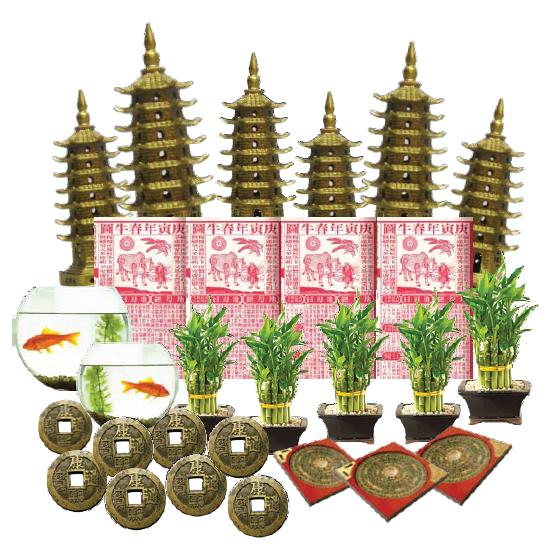Ancient Chinese practice wins new enthusiasts
Reporter: Kris Lee
In a coffee shop in Central, a stylish young woman sits engrossed in what she is reading. Unlike most of the customers, she is not reading a fashion magazine or a gossip magazine, she is reading a feng shui book.
Winifred Woo is a 20-year-old medical science student at the University of Sydney. She has known about feng shui for most of her life, having heard about it from her parents. But it was only after Woo left home to study abroad that she really started to learn about the ancient Chinese practice.
Leaving home and starting a new life alone in a foreign country is not an easy task. Woo encountered lots of difficulties and often felt depressed. “Sometimes there are things that humans can’t control, I hope feng shui can help when I encounter setbacks,” Woo told Varsity when she returned home for Chinese New Year in February.
As a student, Woo wants feng shui to assist her in school work and relationships with others in school. Following the instructions in a feng shui book, she put a Wenchang (see glossary) tower on her desk and lucky bamboo plants in the Wenchang position in the east of her room. She also placed a goldfish bowl in the south-east position of her room, which is the direction of the Taisui (see glossary) Lord this year.
“These things are easy to do, are cheap and have no negative effects, so why not?” To demonstrate how convenient it is to practise feng shui nowadays, Woo whipped out her smartphone and enthusiastically showed off a Luopan (see glossary) application.
After putting all the feng shui decorations in her room, Woo has become more confident about studying. “I am not sure whether there is a placebo effect, because I feel there is a power assisting me,” she says.
Woo may be a student of medical science, but she does not think there is a need to pursue scientific proof for everything, including feng shui. “It is not like taking medicine and getting cured right after that.”
Woo believes in feng shui because she says it is part of China’s cultural heritage. She says that if it did not have its merits, it would not have such a long history or be passed down from generation to generation.
However, while Woo likes feng shui, she stresses she will not invest too much in it because she only sees it as a hobby, not a way to make a living. As a beginner, she is content to get information from online forums, television programmes and books.
But for Wayne Wong Chi-wing, a technician at the Chinese University of Hong Kong, the study of feng shui is worth spending time and money on.
“We have to use money to buy other’s experiences,” Wong says. After studying feng shui formally for two years, Wong finds the biggest investment he has made is the course fee. It cost him $200 per lesson at the primary level and $500 or above for advanced level classes.
Wong currently attends feng shui class once a week. There he learns how to identify a building’s precise direction and different phenomena in feng shui.
Wong believes feng shui can bring his family better health and greater wealth. He says his family members used to fall ill almost two to three times a month but after he followed his feng shui master’s instruction to put some rocks and a cabinet in the position governing health, they were rarely ever sick.
Feng shui has also improved Wong’s relationships with others and brings him a sense of pride. Wong joked that in the past, nobody cared about his presence at Chinese New Year gatherings. But after he started to learn feng shui, others would come to him and ask to have their fortunes told. “My friends even gave me the nickname ‘master’,” Wong laughs.
Another thing that interests Wong is the ability to get hints about future directions in life, like predicting when he will start a romantic relationship. Wong says knowing what may happen in advance makes him feel good, yet he also finds drawbacks with this ability. “Sometimes when you foresee something bad is going to happen to your family, but [you are] unable to change it, you will get really upset,” he says.
Despite this, Wong is still passionate about feng shui. The ancient practice is incorporated into so many things, he says, that his enthusiasm never wavers. “After you learn Bazi [see glossary] and Ziweidoushu [see glossary], you will then want to learn divination and palmistry,” says Wong. “As for learning, there is no end to it.”
Philip So Fu-cheung, a 59-year-old civil servant, has been a feng shui lover for more than 10 years. He learns feng shui from a friend who is a feng shui master and attends courses that take his fancy.
So was a feng shui sceptic until he experienced how it could help him when he fell on hard times after 1997. He says feng shui helped him get over the difficulties he had after his mother’s illness and death several years ago.
Now, So puts feng shui decorations in his office to prevent bad incidents and shares what he knows with those who are in need and those interested in feng shui. He has given feng shui advice to his wife and sister-in-law to help them through tough times financially and conflicts at work.
But while So believes in feng shui, he repeatedly emphasises that it is crucial not to be superstitious about it. “You can believe in feng shui, but you shouldn’t have blind faith in it,” he says. “We should not attribute everything that happens to feng shui.”
So ridicules those who blame feng shui for all the misfortunes in life. He says he once followed everything that his feng shui master told him in relation to a business transaction, but still lost $3.5 million. However, he does not blame the loss on feng shui. Instead, he accepts his failure was due to the lack of experience in doing business.
Rather than being dependent on feng shui, So thinks outcomes in life ultimately depend more on individual effort. “As the proverb says, one’s appearance reveals one’s heart, it is more important for people to have spiritual cultivation [in order to be successful],” says So. “Feng shui can only act as assistance.”
When it comes to the assistance people seek from feng shui, there are certain areas of life where people tend to ask the most questions.
Leung Mo-zi, 48, is a retired feng shui consultant who started practising feng shui 20 years ago. He noticed a pattern among the people who sought his advice over the years. “Males asked for wealth while females asked for marriage,” says Leung without hesitation. “[This is] the law that never changes.”
Another thing Leung notices is that feng shui is no longer an interest just for the middle-aged or elderly, but has become more popular among young people. “The youngest [customer] was only 14,” he says. Leung felt very surprised when the 14-year-old girl first contacted him through his blog and asked for fortune-telling.
Leung says not only are more and more young people becoming curious about feng shui, some even try to compare the accuracy and usefulness of feng shui with western horoscopes or tarot-reading.
The modernisation of feng shui has also engaged young people in the ancient practice. Leung says the old-style feng shui manuals can now be replaced by computer software to assist fortune-telling.
Leung believes this can save time and reduces errors. “It is much more convenient these days,” he says. “But ironically, some conventional customers question the accuracy of this modern method.”
While younger feng shui enthusiasts prefer the efficiency of feng shui 2.0, the traditional methods are still preferred by the older generation.
What kept Leung practising feng shui for so many years was the satisfaction he got from helping others, especially those who were poor or unemployed. Apart from being a consultant, Leung also offered feng shui courses to spread the knowledge and encourage people to help others.
Leung had his own way of choosing who to teach. Before admitting students, Leung first looked at their physiognomy and personalities to make sure they had a good heart and would only use feng shui in a positive way. “I don’t want my students to use feng shui to hurt anyone,” Leung says.
Now that Leung has retired, his next goal is to write a book and share his experiences and knowledge of feng shui. He hopes the book will be passed down from generation to generation, and more and more people can use feng shui to help others.
What is Feng Shui?
Feng shui, which literally translates as “wind water”, is the art and science of living in harmony with our living and working spaces. The practice of feng shui aims to bring good fortune and improvements to health, wealth, and relationships. It is also believed that feng shui can help people avoid misfortunes by predicting and preventing bad events.
Apart from feng shui, many feng shui lovers also study Bazi (see glossary), Ziweidoushu (see glossary), divination and palmistry.
History of Feng Shui
Feng shui originates from China, but the date is vague. Some say it started in the West Han dynasty around the third century BC. Some say the ancient practice of feng shui began 2,000 to 5,000 years ago. Some say it is as old as the culture itself.
In the past, feng shui masters were employed by the rich and feng shui elements were incorporated into traditional Chinese architecture. Feng shui was also used by emperors in war, for building palaces and royal burial sites, and to secure their power and improve the prosperity of their dynasties.
Glossary of Feng Shui
Luopan
Chinese compass used to find the precise direction of buildings. Unlike the Western compass, the magnetic needle in a Luopan points South instead of North. In feng shui, the direction of things plays an essential role in determining fortune.
Wenchang
Position that affects school work performance. It is believed that putting green plants at the Wenchang position depending on the year can increase intelligence.
Taisui
Based on the 12 animals that symbolise the Chinese Zodiac. It determines one’s fortune in a given year.
Bazi
Shows one’s future, including social, economic and marital status.
Ziweidoushu
Based on one’s birth date and shows one’s personality.











































